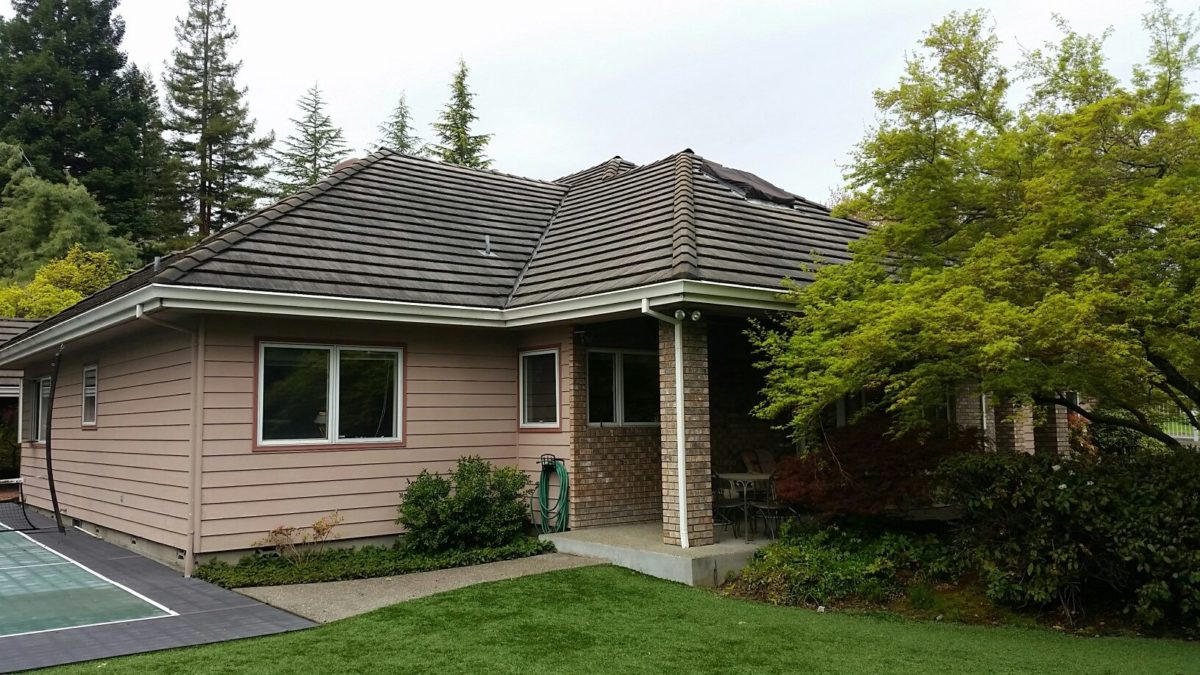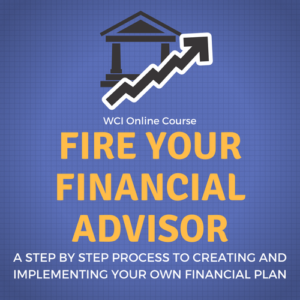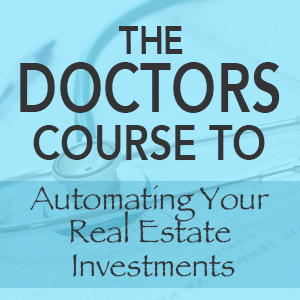It’s that time of year again. Over 30,000 medical residents are about to finish their training and start their first job. Many of them will make some big financial mistakes during their first year that will haunt them for years to come. I wrote The Doctors Guide to Starting Your Practice Right to help new attendings avoid some of those errors and get started on the right foot.
One of the biggest errors many doctors make is to buy a house right after they leave residency. Society gives us a big push to own a house, after all it’s the American Dream. Then we have to deal with the false notion that renting is throwing away money. Peer pressure drives us to own a Doctor’s McMansion just like the other doctors in town so we can look the part. There is also some “House Shaming” going on like J Money spoke of in this article on his web site, Budgets are $exy. For almost half of you, and you don’t know if you are in that half, buying a house at this transition will be a big financial mistake. Let me explain why.
First of all, I do believe you should eventually buy a house, but moving to your first job out of residency is not the right time. The biggest reason is the uncertainty of your new job. When you interview for a job, you put your best foot forward. The people who are interviewing you are also on their best behavior. The same thing likely happens when you find out your spouse invited company over to the house and they will arrive in 30 minutes. You will likely run around the house tidying up so you make a good impression.
After you have been on the job for a while, the honeymoon will end and reality will set in, and you will find out what the work atmosphere is really like. You will also have time to experience living in that town and find out whether or not your initial assumptions were correct.
Somewhere in the neighborhood of 50% of doctors leave their first job within five years. Some will move on even quicker. The timing of this move greatly depends on the signed contract and what might have been advanced to you. If, after you have purchased a house, you find yourself in this group of moving doctors, there is a high likelihood that one of two things will happen.
1: You will lose money having to sell your house so soon after buying it.
2: You will not be willing to sell your house for a loss and will become a reluctant landlord.
Occasionally you will come out money ahead, but that is the exception. In The Doctors Guide to Starting Your Practice Right, I discussed and calculated the cost difference of renting vs. buying over a two-year time frame. In that case, the person who purchased a house came out significantly worse financially than the person who rented. And that doesn’t even take into consideration all the added hassle that goes into buying and selling the house. When a renter goes to their next job, they just turn in the keys and walk away.
I had one new attending tell me he was glad he bought his house two years before his residence ended. He sold the house and bought another for his first job, and later realized he might not even stay at that job. He told me he made $40,000 on the sale of the first house after owning it just two years. I thought that was remarkable and wanted to get together to discuss the details. I felt I could use his experience as an example of a good success story.
I asked him to gather up all the financial information from purchasing, owning and selling the house so we could look at it together. He rounded up the purchase price of the home, down payment, loan origination fees, interest paid, utilities, repairs (he did an expensive remodel) and everything else he could find that he spent on the house. Then he collected the selling information: closing costs, realtor fees, selling price and other fees.
When we spoke next, he stated he misspoke about the “profit” he made. He was actually talking about the $40,000 check he pocketed at closing. This is one of the two common errors people make about their house selling profit. They consider the check they got at closing as profit. The other error commonly made is to only look at the purchase price and the selling price and consider the difference the profit. It is convenient to leave out all the expenses. You will rarely make a profit buying a house to live in that you must sell in two years. It is almost always better to rent in this scenario.
If you leave after only a couple of years, you also run the risk that the market might be down, soft or slow at the time you need to sell the house. You could take an even worse bath on this sale if your timing is bad.
Saving a fortune is not the only reason to rent upon moving to your first job. There is a great hassle factor involved in buying, selling, and owning a house. You will need to care for the house and the yard, repairing things that need fixing. When you are a new attending, you will be trying to establish yourself as a good doctor. Being straight out of residency and relying solely on your knowledge to treat your patients, you will continually be brushing up in order to give your patients your best. In those first couple of years, you will also need to study for your board exam. This is not a great moment to throw in the added burden of home ownership.
There is also the matter of your student loans. Most new doctors have a huge debt burden. Using the first few years to get a handle on debt and not adding the additional debt of a home mortgage right away has great benefit. The money you have saved for a down payment on a house can be better used elsewhere at this time in your life. In addition to paying down your student loans quickly, you are likely to need a lot of things you have been putting off buying such as a car, new clothes, some furniture and a well needed vacation. Although your income has just skyrocketed from your residency salary, cash is usually at a premium at this stage, and not tying it up in a down payment will improve your financial life immensely.
The urgency of the house purchase must also be considered. Timing the purchase with when your new job starts can be problematic. You may not have much time to shop. The town is new to you so you really don’t know what part of town to live in or what school district you would like. If you rent something first, you will have time to learn these things before committing to an address. When you are sure you will be staying, you can take your time and find the right house for you, one you won’t feel like you need to upgrade in a few years.
Most doctors will know within a year whether they like the job and want to stay. They will also have a chance to get on their feet financially with a year of high income, unless they screwed up and spent all their new income on expensive cars, furniture, and vacations. I cringe when I see a young doctor drive into the parking lot with a new Tesla, just six months after leaving residency.
Waiting and patience allows for time to settle into what the student loan payments will be on the new higher income. You have likely been on some sort of income-based repayment of your student loans. Those payments will be reassessed once your income goes up.
Do yourself a favor, rent a place when you head to your new job. Don’t listen to all the people saying you should buy a house. They won’t be the one stuck with a mortgage and a house to sell if you don’t like your job. After you decide you have found the job you love and the place you want to live for the rest of your life, begin a controlled and laid-back approach to buying a house, when you can better afford it. You will thank me later.
Pick up a copy of The Doctors Guide to Starting Your Practice Right to learn more about establishing yourself at your first job.
Did you buy a house and have to move in the first few years? Tell us how it turned out for you.







Avoiding becoming “house poor” is the single most important choice a new physician can make in her first three years of practice. https://www.triagemd.com/resources/doctor-house
I actually work in lending and student loans and recently advised someone to not purchase too much home. You do not want to be house rich, cash poor. If your high debt amount is bothering you, then do not obligate yourself to more debt. Tackle what you have first. Better yet, if you must buy, then just purchase 25% less than what you are approved for. This will lessen your financial burden and the probability that you will struggle to pay the mortgage.
Thanks,
Miriam
Great advice. It’s not often you see a lender willing to tell someone not to borrow. You are a breath of fresh air Greenbacks Magnet.
As usual, advice that is absolutely “spot on”. I have made the mistake of buying too soon.
When I did my second residency, I rented….took a bit of guff for “why would you ever rent?” when many of my fellow residents were buying. Then the market tanked in 2008….and I felt a lot smarter.
Like much of good financial behavior, it’s not hard to know the right decision, just hard to resist the “normal” behaviors.
That whole rent shaming thing has got to stop. “Why would you every rent?” has gotten many people into trouble or cost them a lot of money. There is a time and place to rent and a time and place to buy. Short term situations are not the time to be buying. Choose well. Resist following the herd.
Good advice. I waited 2.5 years and knew the market like the back of my hand. I knew schools, I knew flooding, I knew distance to hospital etc. By the time I was ready the bankers knew me (but I used USAA anyway). A house that matched my spec came on the market and I bought it on my terms.
It’s good to here a success story. Thanks for the comment.
I wonder if this advice could extend to all doctors of all ages. These days, how long does a doctor of any age stay at their job? It seems mobility is increasing, I know plenty of docs of all ages who moved in recent years. As more docs are becoming employees, moving around is only easier, financially and emotionally. The private practice doctor puts in their time, establishes themselves within the community and may be less likely to leave, and it may even be harder to do so, emotionally and financially. An employed doc may not even have to leave the city, but they could be moved to a clinic across town, lengthening their commute, renting would allow them to move closer very easily.
If your practice model is to move to a new job every 2-3 years, then you probably should always rent. But that is just a mindset, not wanting to stay somewhere. You can stick around and establish a life in a town, friends, family, schools even as an employed physician. The choice to stay somewhere is more about the person than the type of practice they have. The bottom line is that owning is the best long term choice and renting is the best short term choice, usually.
Great article. The societal pressure is definitely there to push people into buying homes. I can only imagine this pressure is even greater for high income professionals such as doctors.
Big decisions like buying a house should be made by YOU and not by somebody else’s expectations.
Thanks for the comment and you make a good point.
This is the post I was referring to that just got released today.
https://xrayvsn.com/2018/05/08/i-have-pretty-much-made-every-mistake-in-the-book-part-iii/
I actually put a link to your site in this particular post. Definitely will attempt to help others as you do.
Thanks for spreading the word.
Very timely post for me as I am about to post my personal experience making this very mistake (multiple times unfortunately) on my newly launched blog (the post is scheduled to come out next wk (May 8), part 3 of 5 in my Financial Mistakes I’ve made series). lol
Definitely wish I had someone like you advise me way back when.
Xrayvsn, so sorry for your past mistakes on houses. Hope the chain of errors has stopped now. Maybe you can help me spread the word so others don’t make the same mistakes. My book, The Doctors Guide to Starting Your Practice Right, was an attempt to help others get off on the right foot and avoid some of the mistakes us older docs have made. Thanks for your comment